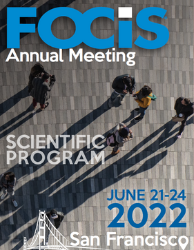Inflammatory Responses Conserved Across Human and Murine Neutrophils
- RG
Ricardo Grieshaber-Bouyer, Dr. med.
Heidelberg University Hospital
Heidelberg, Baden-Wurttemberg, Germany - GD
Guillermo Docena, PhD
Full Professor, Researcher of CONICET
University of La Plata
LA PLATA, Buenos Aires, Argentina
Presenting Author(s)
Chair(s)
Neutrophils are central to immune defense and pathologic inflammation, yet how their transcriptome is conserved across inflammatory conditions and species is poorly understood. Here we show that in neutrophils, a larger fraction of expressed genes possess one-to-one orthologs across humans and mice compared to other leukocytes. Within the most abundant orthologous genes, neutrophils display less transcriptional diversity and a higher correlation of lineage-specific gene expression across species compared to other lineages. Transcriptomes of inflamed neutrophils deviate markedly from resting blood neutrophils and are highly heterogenous, with most variability attributable to species, source of inflammation and tissue. Nevertheless, we identify a program of features conserved across a broad range of conditions and between humans and mice, including genes encoding IL-1 family members, CD14, IL-4R and PD-L1, suggesting the existence of a canonical inflammatory response program in neutrophils. Key elements of this program were validated experimentally by in vitro stimulation. Transcription factor enrichment analysis implies NF-κB family members, AP-1 complex members, NFIL3, CSRNP1 and PLSCR1 as key drivers, consistent with strong enrichment for GO terms associated with NFκB activation and cytokine response in inflamed neutrophils. Neutrotime scores trended higher in inflammation, implying more advanced maturation as neutrophils become activated. Taken together, we demonstrate that the neutrophil transcriptome is substantially conserved in homeostasis and that inflamed neutrophils display an inflammatory response program conserved across conditions and species.

